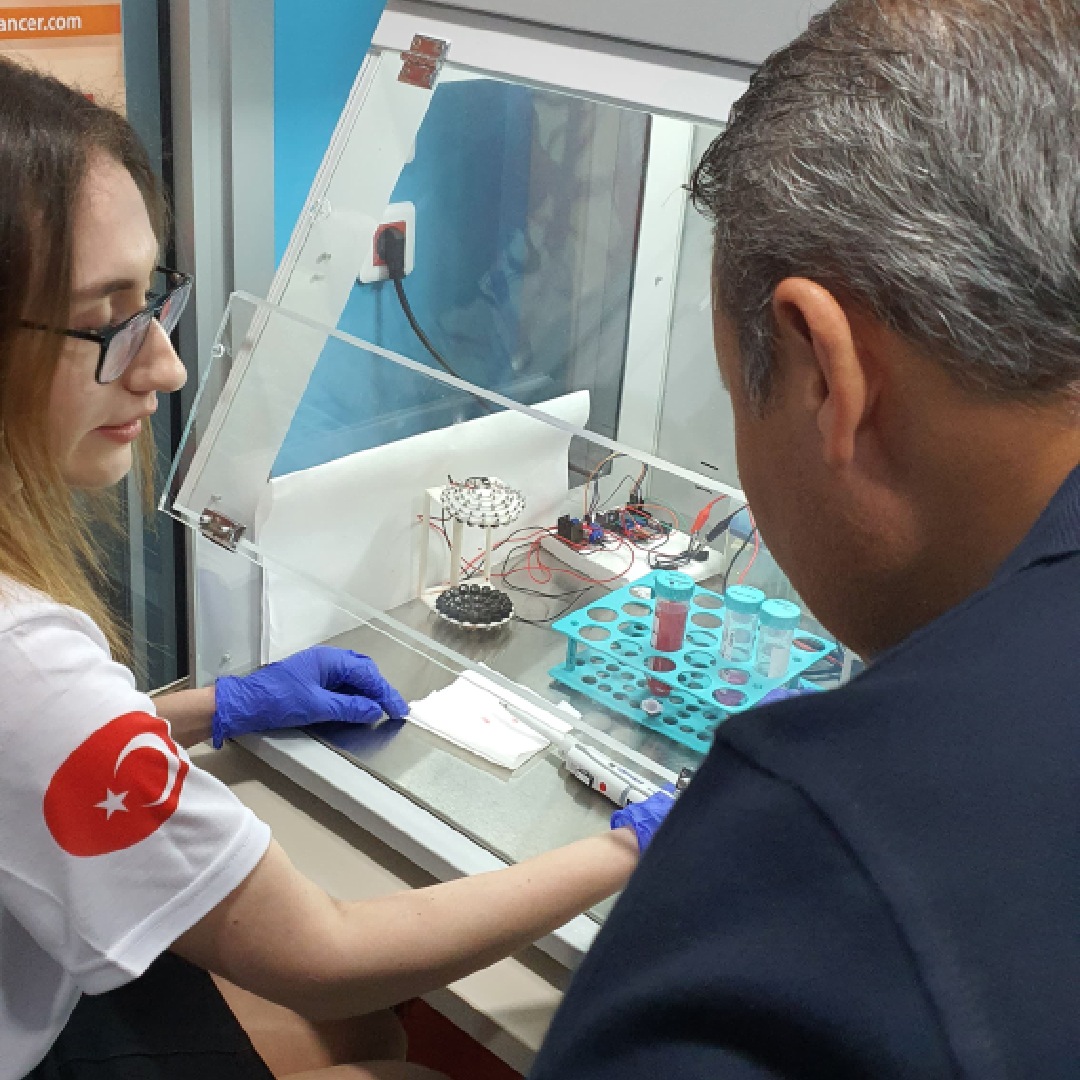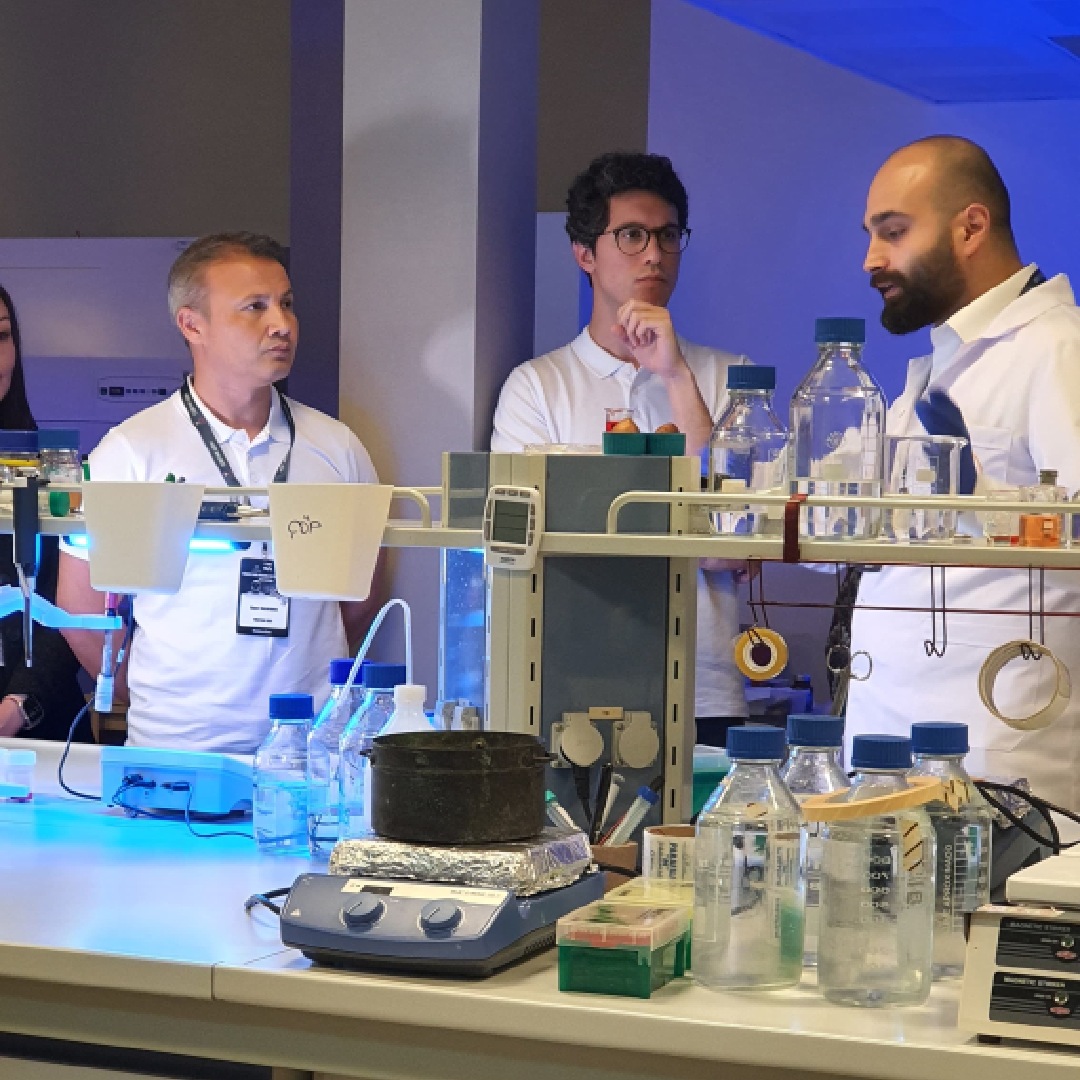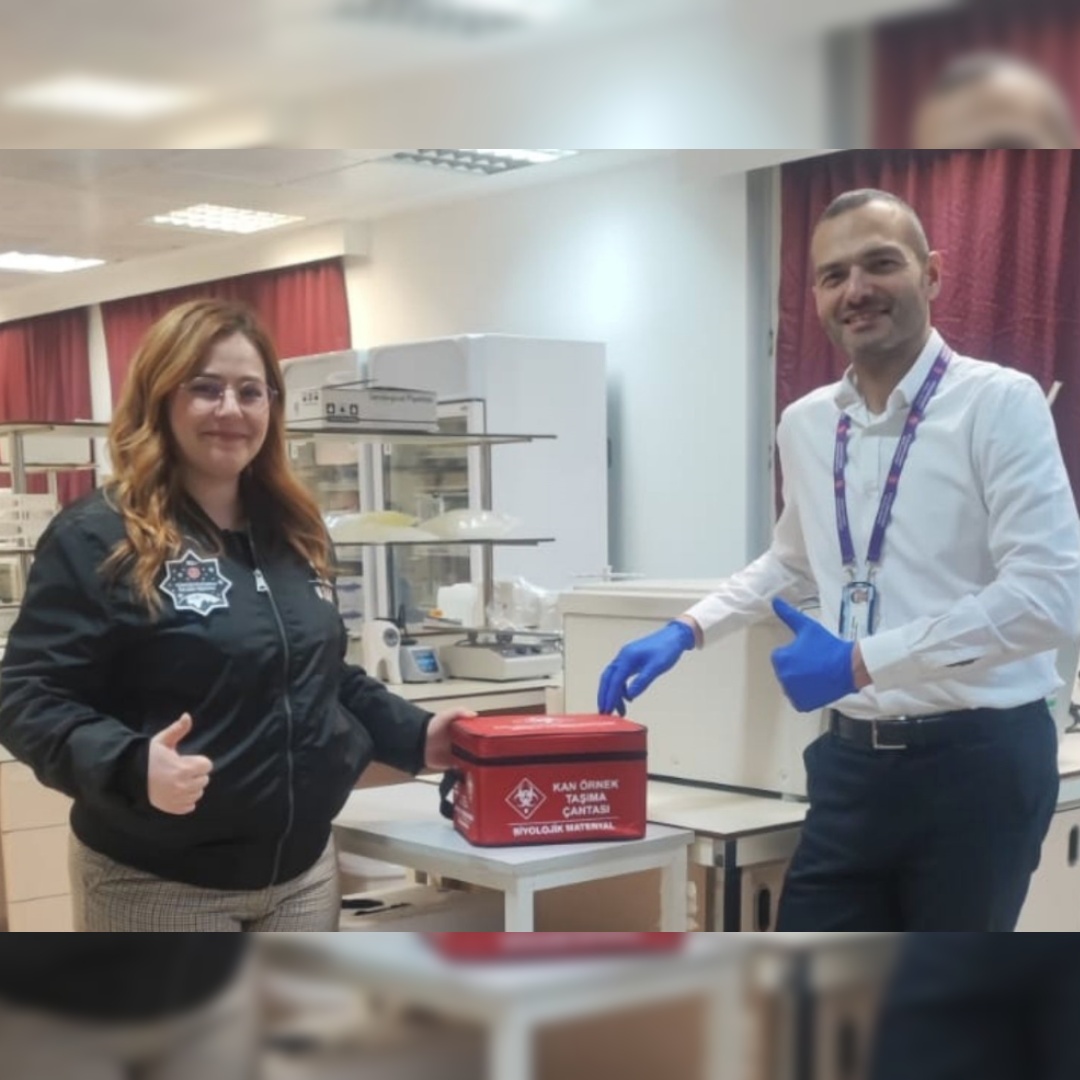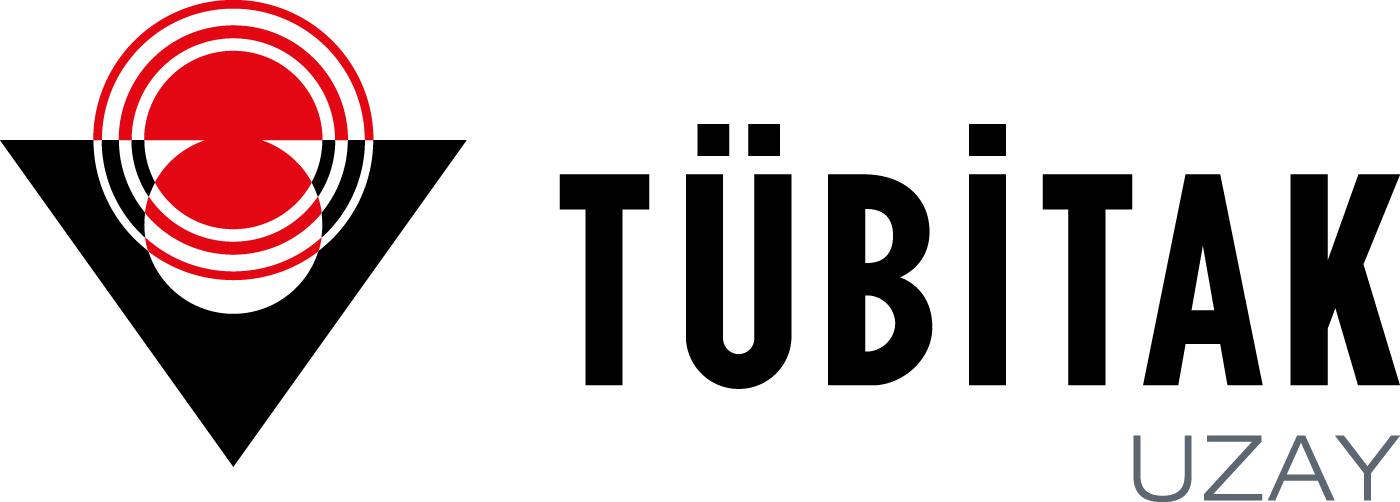UZAY
Human Research
MESSAGE
Microgravity Associated Genetics Research
Üsküdar University
Dr. Cihan Taştan
Büşra Tekirdağlı, Ebru Çam, Özge Demir, Gamze Gülden, Berranur Sert, Fatmanur Erkek
The MESSAGE (Microgravity Associated Genetics Research Group) project on Ax-3 is interested in assessing microgravity-associated changes in gene expression in human immune system T-cells collected from the astronauts.
In order to identify gravity-sensitive genes that may contribute to the immune disorder associated with space flight, pre and in-flight samples of blood is acquired from each subject at selected time points to be investigated by performing transcriptome analysis.
After the space mission, CRISPR gene editing technologies are planned to be applied to knock out genes in T-cells found to be upregulated by microgravity.
The researchers also aim to produce immune cells with the observed microgravity-associated gene changes by using an acoustic levitation device on the ground to mimic microgravity and explore the cells' changes in proliferation, survival, stress responses, anti-cancer and cytokine release profiles at a cellular level.

METABOLOM
Analysis of Changes in Metabolome/Transcriptome of Astronauts (Plasma, Saliva and Urine) on Space Missions and Creation of National Omics Datasets
Ankara University
Prof. Dr. Emel Emregül
Oğuzhan Durmaz, Prof. Dr. Emirhan Nemutlu, Assoc. Dr. Evren Özçınar, Assoc. Dr. Burak Derkuş, Dr. Nihan Akdoğan, Dr. Cemil Can Eylem
Spaceflight can be a stressful experience for the human body to adapt to changes in microgravity, such as physical demands, nutritional changes, and lack of sleep. The physiological changes can be monitored by profiling the "'omics" of the body — the changes in gene expression (genomics), protein expression (proteomics) or metabolites (metabolomics). A better understanding of these changes in an individual's response to spaceflight can help to develop personalized countermeasure procedures that can optimize the safety and performance of each astronaut.
METABOLOM aims to gather data from the blood, urine and saliva samples of AX-3 crew members collected preflight and postflight; to better understand omics changes seen after spaceflight and inform researchers working on gravitational physiology, aviation, and space medicine on best practices for astronaut care.

MIYELOID
Analysis of Effect of Radiation Exposure on Myeloid-Derived Suppressor Cells in Peripheral Blood
Hacettepe University
Prof. Dr. Güneş Esendağlı
Prof. Dr. Kerim Bora Yılmaz, Assoc. Prof. Dr. Erhan Güven, Hamdullah Yanık
The health of individuals on a space mission may be affected depending on the ultraviolet rays of the sun, galactic cosmic radiation, changes in gravity, the air they breathe and the ambient humidity. It is obvious that these people in space missions are faced with genetic mutations and cancer risk due to radiation effects in the long term.
MIYELOID research aims to determine how ultraviolet rays, galactic cosmic radiation, gravitational changes, breathing air and environment, all the challenging factors exposed during the space mission affect the immune system and blood production process of the astronauts.
Changes in the immune system are investigated specifically by comparing the properties and functions of myeloid type blood cells collected from the preflight and postflight blood samples taken from the AX-3 participant astronauts.


